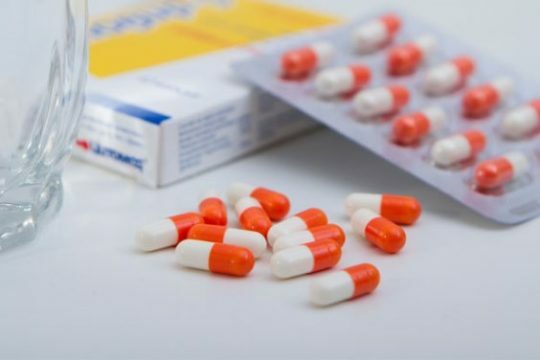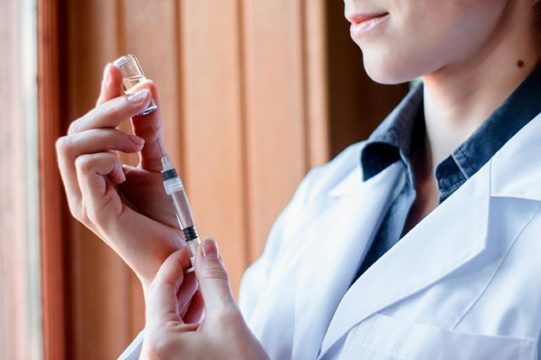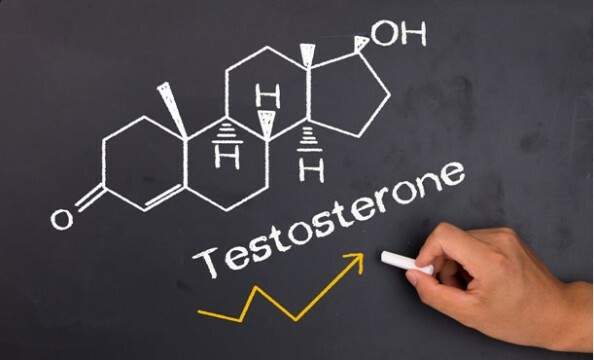Prolactin is produced by the anterior lobe of the pituitary gland, which is the central organ of the entire endocrine system of man. Both in the female and in the male body, this hormone is responsible for the reproductive apparatus, while affecting the performance of many organs.
In women during pregnancy, the prolactin level is high. However, this circumstance should not be frightening. For a woman's body, pregnancy is a natural, but extremely stressful work of the internal organs by the condition. Consequently, the hormonal level in this period of time in women increases.
The content of this hormone in the blood before menstruation also rises, and at its end it decreases.
Functions of a hormone in the female body

This hormone has its receptors in almost all organs of a person, which determines the importance of this biologically active substance in the body.
The main "goal" of prolactin in the female body is the dairy glands. It is here that a large number of target cells are located, which have receptors for prolactin. The effect of this hormone is manifested in women in a wide range:
- It has an effect in the development of mammary glands in the sexual maturation of girls.
- Promotes the process of increasing the number of ducts in the mammary glands, as well as the growth of the lobules of the glandular tissue in them, than supports the production of breast milk.
- It helps to inhibit ovulation during pregnancy, and also after it, during the new menstruation.
- During gestation, it prevents the impact of the maternal immune system on the embryo.
- Lowers the pain threshold level.
- Thanks to his participation, sexual contact ends with getting an orgasm.
The normal level of prolactin content ensures the smooth functioning of a healthy body. However, in any woman, there may be conditions in which the level of the hormone rises and stays firmly in these indications. This condition is called hyperprolactinemia. Why does it arise?
Reasons for
There are three types of causes, which causes hyperprolactinemia in women - physiological, iatrogenic, formed during treatment and pathological.

Physiological factors are as follows:
- lactation period - lactation,
- excessive permanent physical activity,
- unbalanced diets with fasting periods,
- constant nervous tension.
The causes of iatrogenic nature are caused by:
- with the intake of contraceptives or antidepressants for a long time,
- with an increased dosage of estrogen-steroid hormones,
- by the systematic administration of some hypotensive( pressure reducing) agents,
- application in the treatment of psychotic disorders of some neuroleptics.
Factors causing pathological effects in the body:
- pituitary diseases,
- addiction,
- kidney disease,
- thyroid function abnormality,
- cirrhosis of the liver and a number of other diseases.
Symptoms of

Symptoms in which prolactin production increases in women are diverse and depend on the disease that caused it:
- With galactorrhea, the secretion of milk from the nipples can occur rarely, spontaneously or permanently and abundantly. This diagnosis can be confirmed for several years.
- Oligomenorea causes delays in the menstrual cycle for more than 40 days, and amenorrhea - for several cycles.
- Acne develops acne.
- Hirsutism causes the growth of excessive hairline, which manifests itself in the appearance of men.
- Consequences of the formation of prolactinoma lead to a decrease in visual acuity, memory impairment, infertility with regular sexual intercourse, frequent headaches, cause increased intracranial pressure, increased appetite and, consequently, obesity.
- During pregnancy and breastfeeding, the female body loses a lot of calcium, which can lead to osteoporosis, in which the fragility of bones increases.
- In case of polycystic ovary syndrome, infertility may appear, it may cause dark pigmentation spots on the skin, lower abdominal pains, sharp mood changes and depression.
Diagnostics of

To determine the cause of the increase in prolactin levels, anamnesis( a collection of information) of the patient's life is initially found. It is necessary to know exactly about the diseases associated with the endocrine system and the transferred operations. Information on the presence of insomnia or depression, past fractures of a pathological nature is clarified.
To accurately determine the cause of hyperprolactinemia in women, the following tests are prescribed:
- The blood test for determining the level of prolactin is the main way of diagnosis. It allows to find out the presence of hyperprolactinemia and to reveal its degree. It is possible to re-surrender if there are doubts about the reliability of the results.
- To determine hypothyroidism, the delivery of blood to thyroid hormones - TTG, T4, T3 - is prescribed.
- Ultrasound examination of internal organs and mammary glands.
- Radiography of bones to exclude the presence of osteoporosis.
- Tomography( computer or magnetic resonance imaging) or radiograph of the skull in the projection from the side to reveal pathological changes in the hypothalamus and pituitary gland. It is possible to use contrast agents to study small tumors.
- To exclude renal pathology, blood must be submitted for biochemical analysis.
Only, based on the interpretation of the results of the survey, a course of treatment for a woman can be prescribed. It is selected depending on how much the level has risen from the norm.
Treatment of
A high level of prolactin requires treatment under the supervision of a physician. One of the most effective are tablets, based on alkaloid ergot. The dose of drugs is selected only individually. It is necessary to take into account both the level of the hormone and the weight of the patient.

These drugs bring the hormone back to normal within two months. To treat the pituitary tumor with these pills is much longer - up to three years. In case of ineffectiveness of drug treatment, methods of radiation treatment or surgical intervention can be used.



